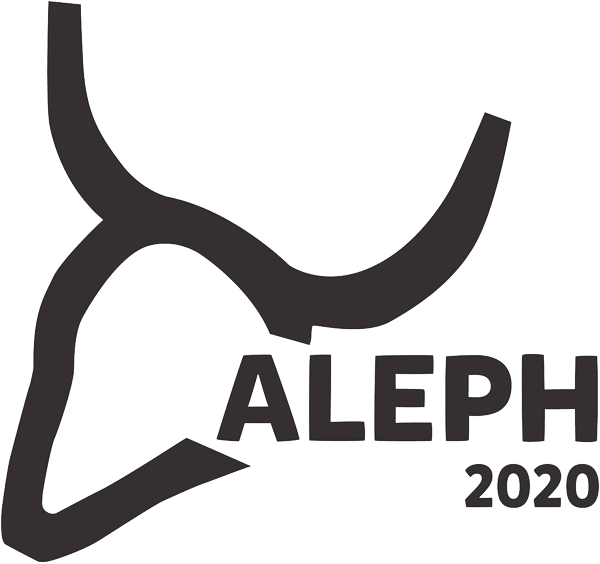Not all (micro)nutrients are easily obtained from plants

The following nutritional benefits of animal source foods will be discussed (for protein, see elsewhere):
Benefits and complementarity within the omnivore spectrum
Optimal nutrient intake and health are more likely when foods derived from both plants and animals are appropriately combined. Composing nutritionally adequate whole food-based diets is facilitated when at least one-third of the caloric intake or half of the protein is sourced from animals. Below that level, in heavily plant-dominated diets such as the EAT-Lancet diet, deficiencies in some of the priority vitamins and minerals may not be inevitable but become nonetheless difficult to avoid. Vegan and, to a lesser degree, vegetarian populations in various countries have been found to accumulate deficiencies in micronutrients that are typically associated with animal source foods, including but not limited to iron, zinc, calcium, iodine, choline, and vitamins A, D, and B12. This may then potentially lead to serious health risks, including bone fractures, sarcopenia, anaemia, and depression.
Long-chain omega-3 fatty acids (EPA/DHA)
Long-chain omega-3 fatty acids (EPA, DHA) play a role in immunity and in neuronal, retinal, and cardiovascular health. They are predominantly found in oily fish, meat, and eggs. While a precursor (ALA) is present in plants, its conversion rate into EPA and DHA is limited. Dietary intake of EPA and DHA tends to be low, resulting in a diminished in vivo status, especially notable in people adhering to plant-dominated diets, by choice or necessity, and critical in the young. It is not always straightforward to significantly improve someone's DHA status with supplementation of ALA, or even EPA.
Vitamin A (retinol)
Vitamin A (retinol) plays a role in cell and tissue differentiation, immunity, and the health of the eyes and skin. It is abundantly found in animal source foods, particularly in liver. Some plants contain precursors (carotenoids), but their conversion may be inefficient. The biological value of carotenoids is genetically contingent and influenced by the carotenoid species, dietary context, and fat intake. Vegans and vegetarians, especially those with poor converter phenotypes, may be at risk of vitamin A deficiency and should monitor their intake and status. Vitamin A deficiency can lead to increased susceptibility to infections, impaired night vision, corneal damage, and blindness, especially in young children.
Vitamin B12 (cobalamin)
Vitamin B12 is a critical nutrient for neural health, DNA production, and red blood cell formation. Deficiencies can lead to irreversible nerve damage. The vitamin is found in animal source foods only. Despite advice to supplement, many vegetarians and vegans remain deficient in B12, which is particularly worrying in the case of pregnant and lactating women, infants, and children. Concerns about lower B12 levels are justified based on population-level observations, and deficiencies are often overlooked or misdiagnosed.
B vitamins (other than B12)
Among the B vitamins, other than vitamin B12, vitamins B1 (thiamine), B2 (riboflavin), and B3 (niacin) stand out as potentially limiting in diets that contain low amounts of animal source foods. While these vitamins are present in various plants, they may become a concern in inadequately developed diets, especially for populations heavily dependent on cereals and living in poverty. Thiamine, which is found in a variety of foods of plant and animal origin, is essential for energy metabolism, and its deficiency leads to beriberi. While beriberi is now rare, it can occur in people on low-nutrient diets high in refined carbohydrates or with high alcohol intake. Riboflavin is crucial for oxidation and reduction reactions in metabolism, especially energy metabolism. While plant foods contain riboflavin, dairy is a major source, providing sufficient riboflavin for about half of the global population. Vegans may sometimes have lower riboflavin status, and deficiency in pregnant women can lead to consequences for newborns. Niacin deficiency, known as pellagra, was historically associated with diets low in animal source foods. Niacin can also be obtained from tryptophan in the diet, but its availability may be limited in protein-poor diets. Niacin deficiency can lead to neurological conditions and impaired immunity.
Vitamin K2 (menaquinones)
Vitamin K2 participates in the synthesis of blood clotting factors in the liver, as does vitamin K1. However, its biological relevance is more important, given its role in brain function and bone health, and in the prevention of cardiometabolic diseases. Vitamin K2 is found in animal source foods and in some fermented plants. Full-fat dairy products serve as rich sources. Some vegetable fats and oils may potentially interfere with vitamin K2-dependent processes. More research is needed to fully understand the specific benefits of vitamin K2.
Calcium and vitamin D
Adequate intake of calcium and vitamin D is crucial for neuromuscular regulation, bone health, immune system function, and disease prevention. Excellent sources of calcium include fish with edible bones and dairy products. Plant-derived calcium may have reduced bioavailability, although good options exist. Vitamin D is best obtained through sun exposure, complemented by the intake of oily fish, liver, and eggs. Vegans may require supplementation as vegan-friendly D2 supplements are less effective than D3 supplements from animal sources. Both calcium and vitamin D deficiencies are common in various populations, which may need particular care in vegans and vegetarians, and may lead to lower bone mineral density and increased risk of fractures.
(Haem) iron
Iron is essential for blood health, the endocrine system, and proper development. Excellent sources include red meat and liver, whereas plants have reduced bioavailability. Even with higher total iron intake, vegetarian diets may result in lower iron status. In high-income countries, iron-deficiency is on the rise, especially among females and likely due to dietary changes, such as a decline in red meat intake. Avoiding animal-source foods requires specific practices like sprouting, fermentation, and soaking legumes, as well as consuming vitamin C-rich drinks instead of tea and coffee to improve iron absorption. Adequate levels of vitamin A and riboflavin are also necessary for iron mobilization and haemoglobin synthesis. Interestingly, the absorption of nonheme iron from plants can be enhanced when consumed with meat or fish, possibly due to certain compounds released during digestion of muscle tissue.
Zinc
Zinc is required for a healthy immune system, correct DNA synthesis, healthy growth during childhood, fertility, and wound healing. Zinc deficiency results in compromised immunity, delayed puberty, and cardiometabolic risk. The best sources are meat, poultry, and fish, while vegetarian diets can reduce absorption by up to one-third. When plants are combined with animal-derived foods, absorption improves. Diets low in animal source foods and rich in fibre and phytates cause low zinc status, even at recommended intake levels. Yet, even in omnivorous populations, zinc intake levels can be below the estimated average requirement.
Iodine
Iodine is essential for thyroid hormone synthesis, which may be compromised in diets that contain high levels of goitrogenic foods or have become more Westernized. Fish, seafood, seaweed, eggs, and dairy are good dietary sources. Dietary change to more plant-based diets could aggravate iodine adequacy, especially in regions without iodine fortification programmes. Deficiency leads to goitre, low metabolic rates, and mental retardation. This is particularly critical for lactating females. Vegetarians and vegans in such countries are at increased risk of low iodine status and deficiency, and may need iodine supplements to ensure adequate intake.
Selenium
Selenium is involved in antioxidant defences, thyroid function, and immunity. Good sources are seafood, organ meats, dairy, nuts, and grains. Selenium availability in food relies on the content in soils, which affects plants more than animals. Intake may be low in some populations, such as older adults and vegan women. Avoiding animal source foods may reduce selenium intake and/or status. Deficiency risks may be higher in vegan and vegetarian populations, depending on the biomarkers used to identify deficiency. Excessive intake can also be toxic.
Choline
Choline contributes to neural health, memory, and foetal brain development, offering protection in early and later life. Since the liver's production of choline is insufficient, it must be acquired from the diet. Rich dietary sources include organ meats and eggs. Many, if not most, vegetarians may not meet the recommended intake levels, which is particularly relevant for pregnant women. In older adults, decreased choline intake and low circulating choline levels are associated with an increased risk for cognitive decline and Alzheimer’s disease progression.
Other bioactive compounds
Food offers more than the sum of protein, vitamins, and minerals, leading to a 'matrix effect', something which may at least be partially ascribed to the presence of overlooked biochemical compounds. Animal source foods contain various bioactive molecules, such as taurine, creatine, carnosine, anserine, carnitine, conjugated linoleic acid, insulin-like growth factor-1, and bioactive peptides. Their health effects are multiple, including antioxidant, anti-inflammatory, and anti-aging outcomes. They contribute to gastrointestinal, cardiovascular, and cognitive health, as well as immune functions.
